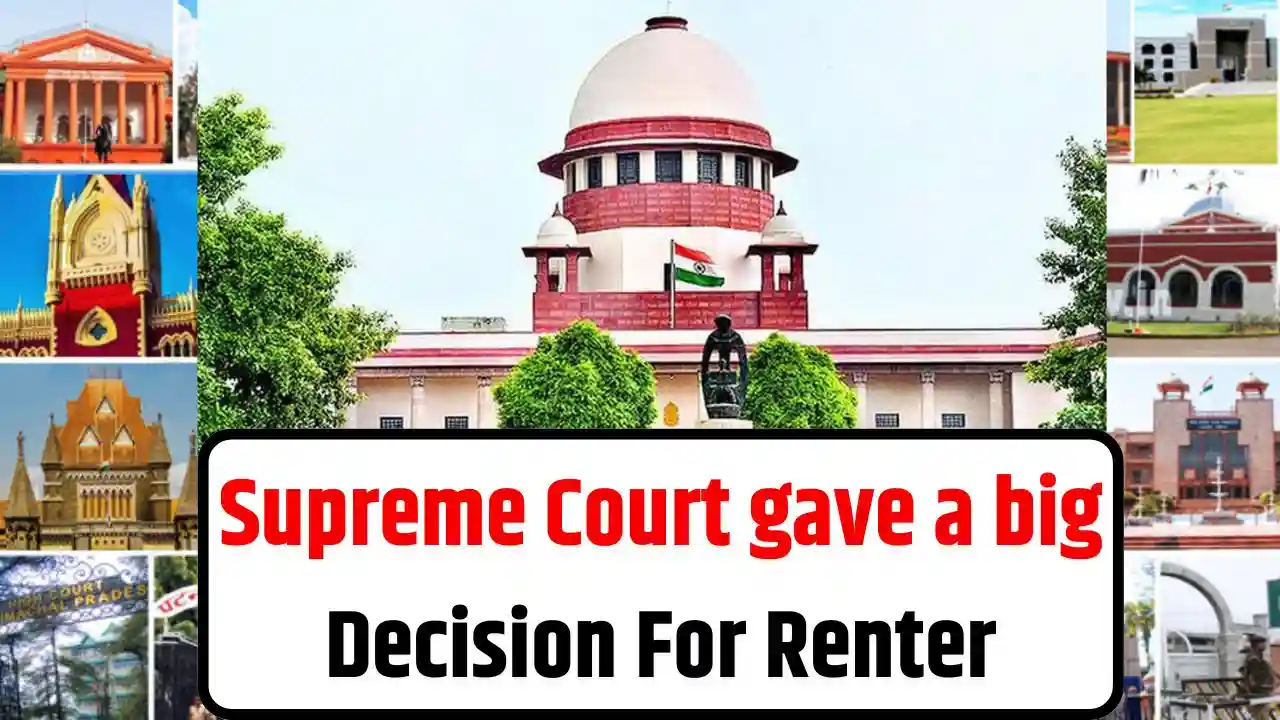The sweet-sour relationship shared by tenants and landlords sometimes turns bitter and leads to court cases. One such case reached the Supreme Court. The tenant had defaulted in paying rents for three continuous years. In return, the property owner asked for rent payment and evacuation from the property. The Supreme Court has passed a landmark decision in such a case.
From buying and selling property to renting it, there are very many rules and laws governing all this. The law gives many rights to tenants and property owners. Any of the parties involved can knock on the court’s doors if one party denies the other its rights and breaks a specific law. These cases travel through lower courts and land at the Supreme Court if need be. One such case recently reached the Supreme Court.
The landlord has been provided with relief by the Supreme Court
In fact, one case was where a tenant didn’t want to vacate the house. The Supreme Court passed a landmark decision on that matter. The court had given the landlord the relief while denying it to the tenant. The court said that those who have glass houses do not throw stones at others’ houses. The tenant received a jolt in this while the landlord found immense relief. The Supreme Court made a direction to the tenant to pay the rent.
The property will have to be vacated.
A 3-member bench headed by Supreme Court judge Rohington F Nariman has heard the case. The court has refused any kind of relief to the tenant Dinesh, along with orders to vacate the property. It also ordered depositing the outstanding amount at the earliest possible.
No further extension for depositing the outstanding dues
The tenant’s lawyer Dushyant had pleaded before the court bench to grant some time to deposit the dues, however the court refused to give any further time. The court (Supreme Court) also declared that they have harassed the property owner in this case to such an extent that there cannot be any relief granted by the court. The court ordered the vacation of the property and asked for urgent payment.
The tenant lost the case everywhere.
Here, the renter has not paid the rent of the property for the last three years. He is not willing to vacate the house when asked to vacate by the owner (tenant vs property owner supreme court case). The property owner thus had to come to the court. The lower court proceeded to pass a judgement in favour of the landlord directing the tenant to vacate the property and deposit the rent, for which the tenant had been asked to vacate within two months. Moreover, orders were given to pay the rent from the filing of the suit to date of vacating the property at Rs 35000 per month. But the tenant did not agree to this.
Thereafter, when this moved to the High Court, the Madhya Pradesh High Court again ruled in favour of the landlord. The tenant was given four months to deposit the Rs. 9 lakhs sum. After this, when the tenant approached the Supreme Court, the court rejected the petition of the tenant. It also ruled in favour of the landlord.



